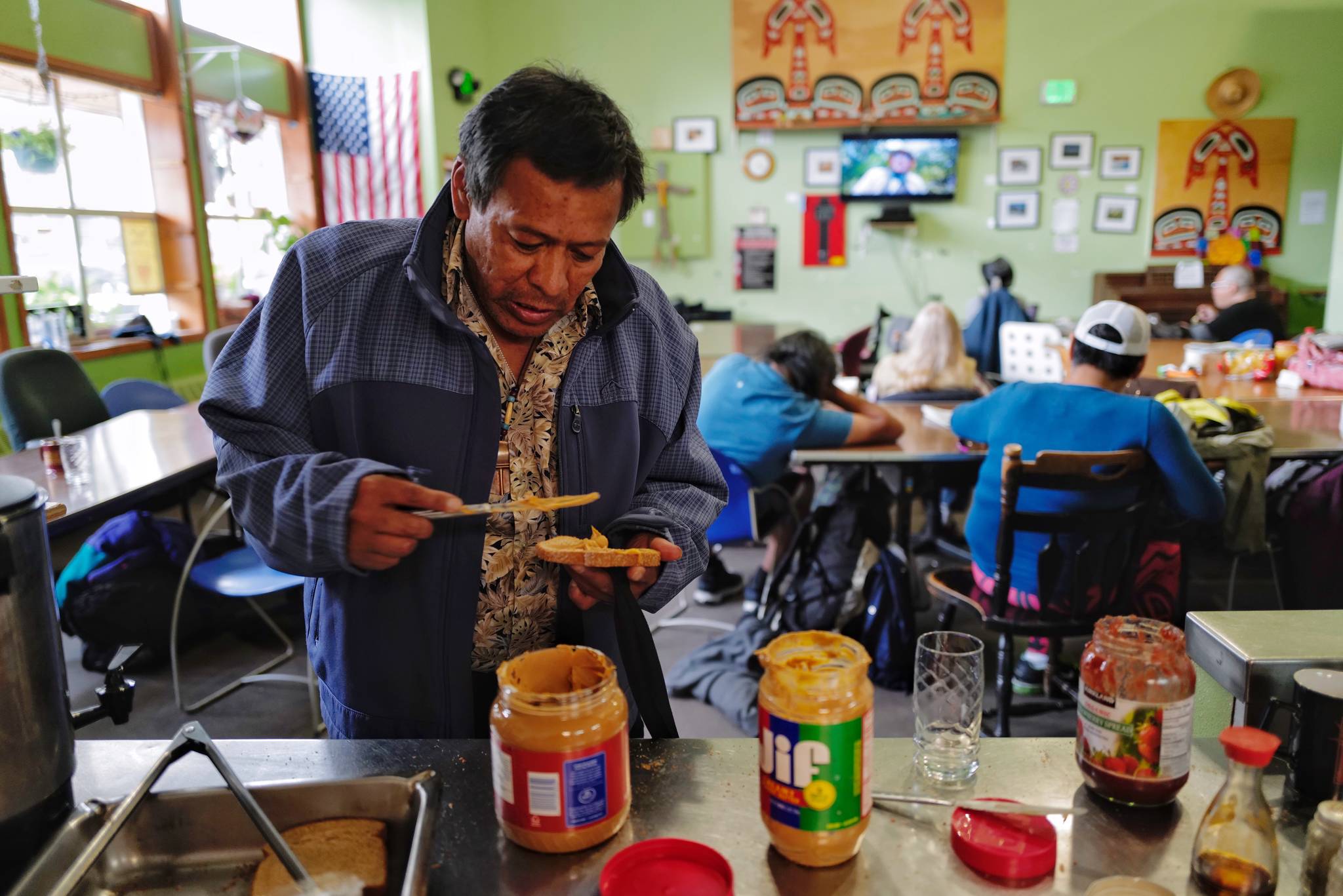If Gov. Mike Dunleavy’s vetoes stand, Juneau’s homeless shelter and soup kitchen will be able to help fewer people.
The elimination of Community Initiative Matching grants and $7.2 million cut to the Homeless Assistance Program that were part of more than $400 million in vetoes announced last week translates to a loss of 20 percent funding for the Glory Hall.
That state support would usually provide $147,500 to Glory Hall, its executive director Mariya Lovishchuk said.
“We’ve been sitting around here — the board and I — thinking about what we could possibly cut,” Lovishchuk said in a phone interview.
[More than $400 million in cuts announced]
Lovishchuk said discovering previously untapped alternative revenue sources to preserve services is unlikely.
“We are constantly looking for alternative revenue sources,” she said. “If they exist, we would have found them by now.”
Thirty-three percent of Glory Hall’s revenue already comes from community support, Lovishchuk said, so increased giving is unlikely to make up the difference.
State funds previously helped support both day and night operations at Glory Hall.
Lovishchuk said $97,500 in Basic Homeless Assistance Program money generally covered some electrical costs and 75 percent of what it costs to have an employee present at the emergency overnight shelter.
An employee must be present for the shelter’s 40 beds to be available to the community.
“Without that person, we cannot provide emergency shelter,” Lovishchuk said.
A $50,000 community matching grant is used to keep the day shelter open and support Glory Hall’s breakfast and lunch program, Lovishchuk said. The matching $50,000 comes from community donations.
Over the course of the year, that money pays for about 15,000 meals, Lovishchuk said.
The impact the reduced funding could have on the Juneau Housing First project is still being evaluated, Lovishchuk said.
“It doesn’t seem to be impacting this fiscal year for Phase 1,” she said. “We’re definitely very nervous about the future.”
She said while nothing has officially been decided in light of a special Legislature session that could result in overrides for some of the governor’s vetoes, the emergency shelter generally takes a higher priority.
“If the funds are not appropriated back, we will have to close the Glory Hall from 8-4 or something and stop the lunch and breakfast programs,” Lovishchuk said. “We are just hoping, and a lot of people are praying that the small but critical programs stay in tact.”
[Lives on the line: Proposed cuts could hinder Glory Hall homeless services]
Whether there will be enough support for veto overrides is still unclear. Seventy-five percent of the Legislature — 45 members — would need to vote to override vetoes.
“It’s an extremely high bar to clear, but we’re working on it,” said Sen. Jesse Kiehl, D-Juneau.
He said phones are ringing all over the state while legislators attempt to discern the level of support for overriding vetoes.
Whether that’s an effort that would be best served by a piecemeal approach, a compromise that would leave some vetoes intact while overriding others or one override for all 182 line-item vetoes is also unclear.
However, answers could become apparent next week with a special session set to begin July 8.
“All things are subject to change, but I would look for a joint session on veto overrides in the first two days,” Kiehl said.
• Contact reporter Ben Hohenstatt at (907)523-2243 or bhohenstatt@juneauempire.com. Follow him on Twitter at @BenHohenstatt.

